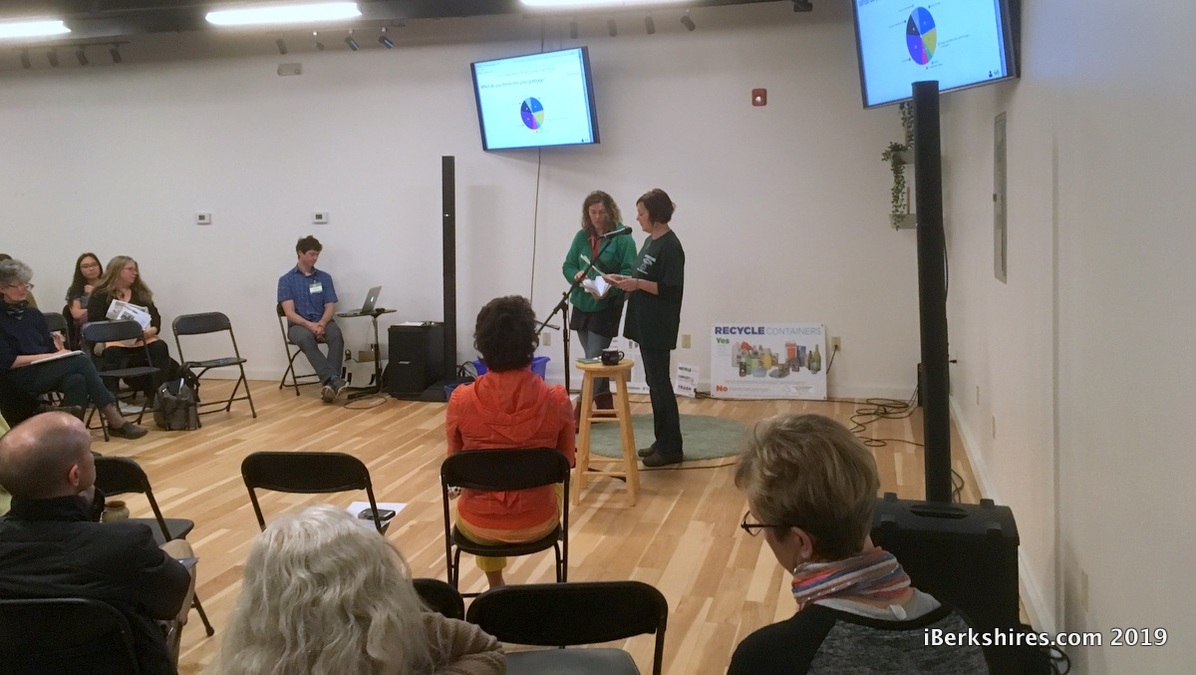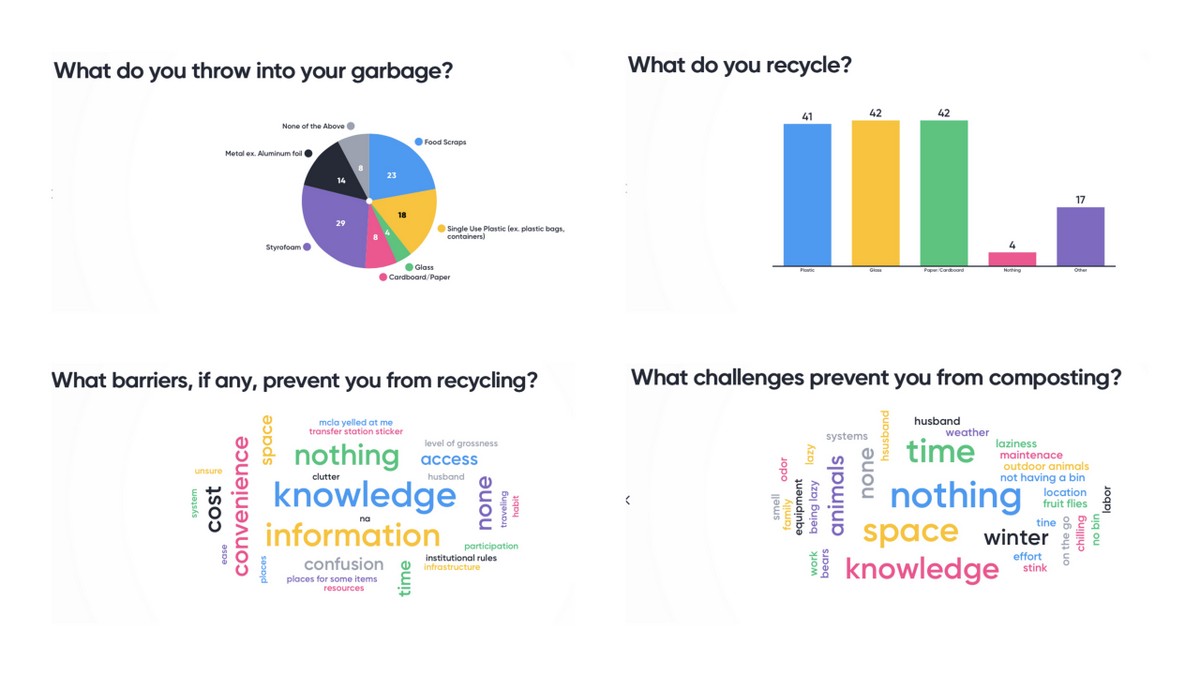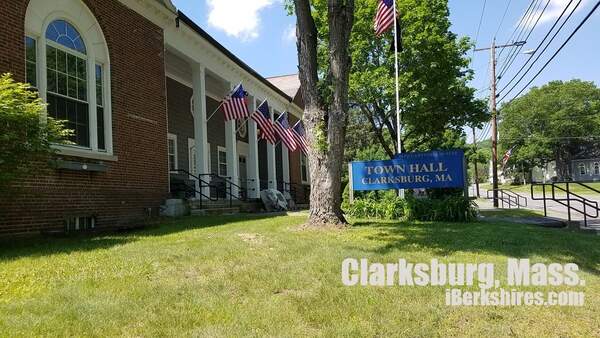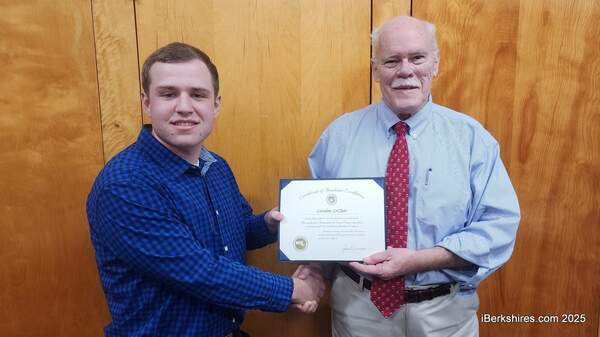
North Berkshire Coalition Forum Urged to Think Green
.JPG)
NORTH ADAMS, Mass. — We've all heard it before, but the "reduce, reuse, recycle" mantra is one we should still be heeding.
That was the message a group of environmental advocates gave to the approximately 100 participants in the Northern Berkshire Community Coalition forum on Friday, titled "Moving Toward Sustainable Living in North Berkshire": Do what you can to help reduce your own footprint.
Elena Traister, professor of environmental studies at Massachusetts College of Liberal Arts, got the ball rolling by reminding the audience of the importance of those "three Rs" — but also of their pitfalls. For example, the trendy topic lately is banning single-use plastic bags, but many people already reuse such bags for things garbage bin liners and kitty litter. So the bags are being reused, but they still will end up in the landfill — but if they weren't given out at stores people might just go buy some, which goes against the "reduce" suggestion.
"It's a tricky issue," Traister said. "You need to think carefully about what the best option is."
Traister also talked how to minimize personal energy use — not just in the home weatherizing, swapping out old light bulbs for new LED ones, programming the thermostat, purchasing Energy Star appliances and considering solar but also physically, by driving less, walking or using public transportation more, and driving more fuel-efficient vehicles.
Next up was Linda Cernik, program coordinator at the Northern Berkshire Solid Waste Management District. The district, which comprises 13 municipalities, has collections that help people recycle items like hazardous waste and electronic waste in responsible ways to keep items out of the landfill. More importantly, she has information on what can and cannot be recycled.
"It's so complex what you can throw in your trash," she said, pointing out that textiles should never be thrown in the regular trash, where they will take years to break down and add to methane emissions at landfills. Instead, donate all textiles to Goodwill or at textile drives, where most material can be re-used in some way. (Goodwill, for example, turns old T-shirts into rags, using large machines run by trained employees, thus giving local people jobs while recycling textiles.) In 2018, Cernik said, 30,000 pounds of textiles were recycled, 30,000 pounds of scrap metal and 938 pounds of electronic waste.
"You can see the need for this," she said.
Another program Cernik coordinates is the "Green Team" initiative with local schools, which Hoosac Valley teacher Lindsay McGinnis spoke briefly about. McGinnis said the students are learning first-hand through exploration of the LEED-certified new building, the solar array in the school's front yard, a school garden and more, including (she hopes) funding to go "farm to school" in the school's cafeteria.
Also speaking Friday about her experiences was Mary Stucklen, a member of the Pittsfield Green Committee, who had one big first piece of advice for everyone: "You don't have to be perfect to help save the world."
Some ideas Stucklen shared for how to help when outside the home included refusing plastic straws and utensils when out of the home, asking for plastic cups instead of polystyrene when purchasing coffee, or better yet, bring coffee and water bottles everywhere for refills.
"Pick one thing that really inspires you," she said.
In home home, Stucklen said, people can use reusable containers or bags instead of single-use storage bags and also get creative with things like using parchment paper for sandwiches and considering beeswax wraps. Other lifestyle changes people can consider are switching out hairbrushes and toothbrushes, making earth-friendly cleaning solutions, purchasing bulk foods and using reusable diapers.

It might seem daunting at first, Stucklen said, but it will get easier.
"You start to see alternatives everywhere," she said.
Amy Donovan, program director at the Franklin County Solid Waste District, spoke about the district's commercial composting program in an effort to encourage people to think about municipal composting. And Natasha Nurjadin, an EcoFellow at the Center for EcoTechnology, talked about resources available to help residents feel more comfortable recycling — a "recylopedia" — as well as incentives available for installing solar. And Berkshire Community Action Council employees spoke about programs available for income-eligible residents for replacing inefficient heating systems and weatherizing homes.
In between all of the presentations, participants were invited to take a survey using Mentimeter software on topics like what they currently recycle and what barriers they face in recycling and composing. Recognizing those barriers is a start when deciding what steps can be taken in someone's life to help out in whatever way they can.
"Let's make every day Earth Day," Cernik said.
Tags: green communities, NBCC, recycling,















